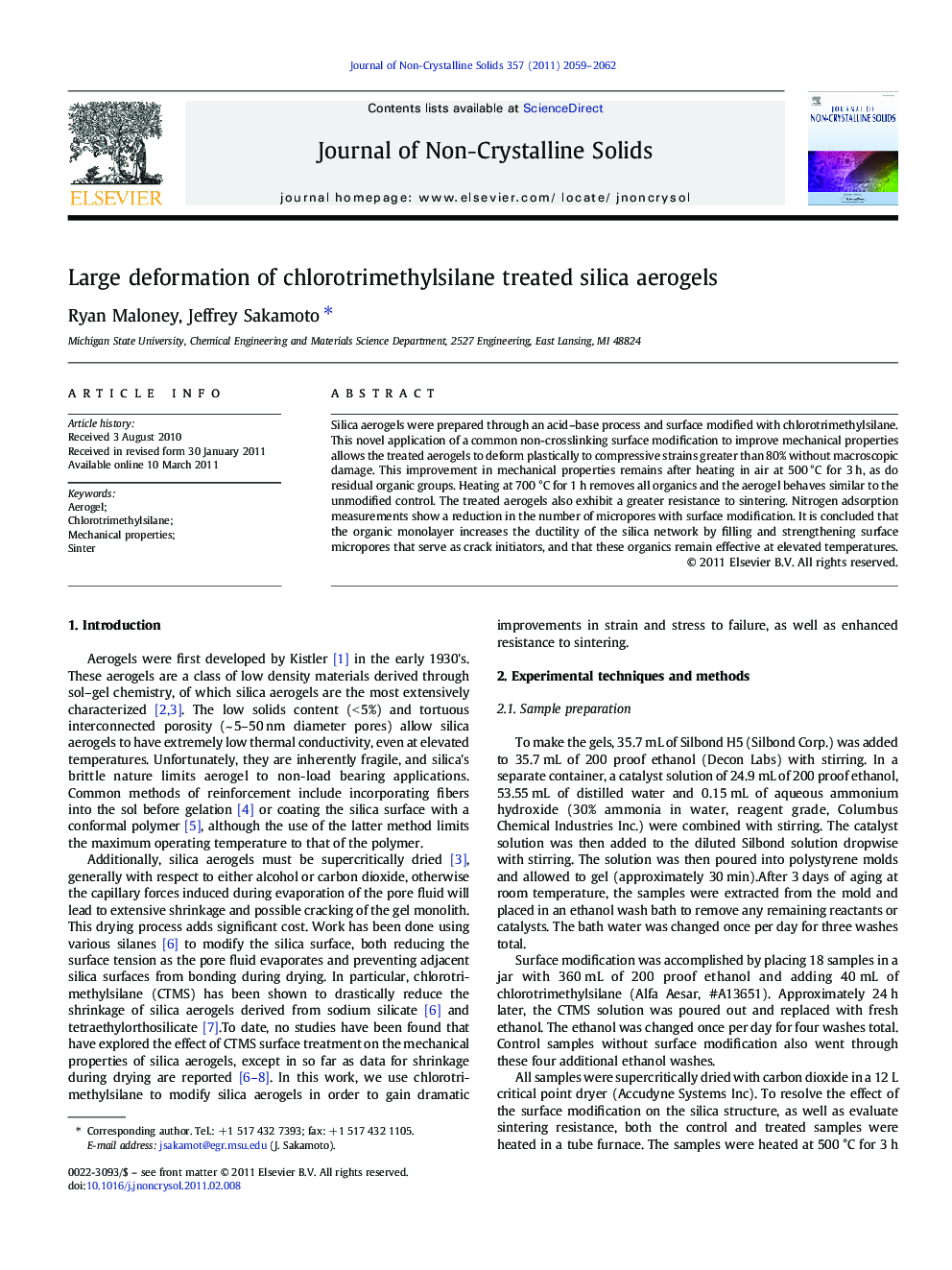| Article ID | Journal | Published Year | Pages | File Type |
|---|---|---|---|---|
| 1482312 | Journal of Non-Crystalline Solids | 2011 | 4 Pages |
Silica aerogels were prepared through an acid–base process and surface modified with chlorotrimethylsilane. This novel application of a common non-crosslinking surface modification to improve mechanical properties allows the treated aerogels to deform plastically to compressive strains greater than 80% without macroscopic damage. This improvement in mechanical properties remains after heating in air at 500 °C for 3 h, as do residual organic groups. Heating at 700 °C for 1 h removes all organics and the aerogel behaves similar to the unmodified control. The treated aerogels also exhibit a greater resistance to sintering. Nitrogen adsorption measurements show a reduction in the number of micropores with surface modification. It is concluded that the organic monolayer increases the ductility of the silica network by filling and strengthening surface micropores that serve as crack initiators, and that these organics remain effective at elevated temperatures.
Research Highlights► Strain to failure is significantly increased by Chlorotrimethylsilane modification. ► Improved mechanical properties are maintained after heating to 500C. ► The Chlorotrimethylsilane modification suppresses sintering at 500C.
